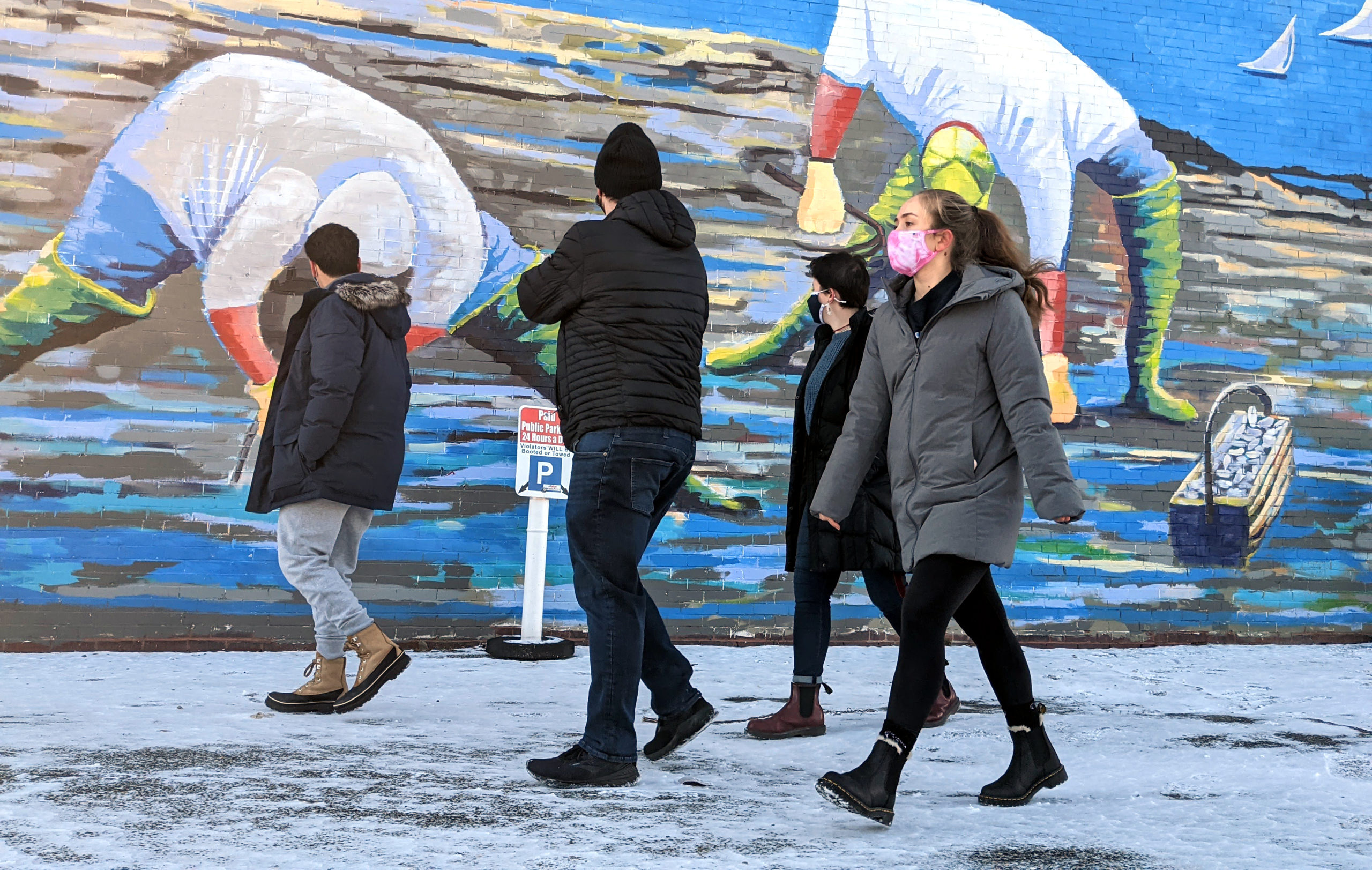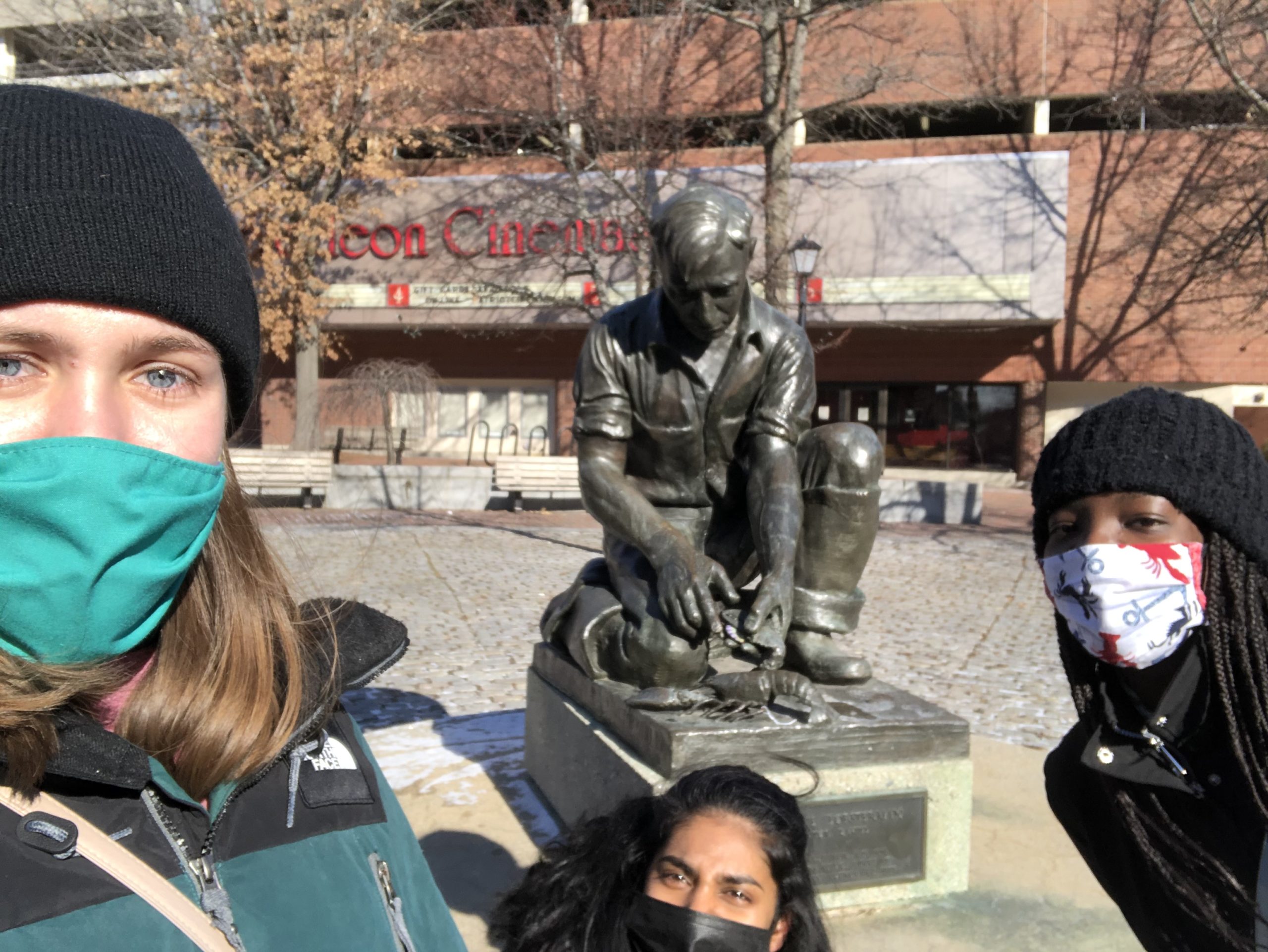
Co-ops on a scavenger hunt in Portland, Maine.
Experiential learning model
For over 100 years, Northeastern University has been a world leader in cooperative education (co-op), the University’s cornerstone experiential learning program.
By alternating semesters of academic study with periods of full-time work, students can transition between academic and professional contexts. Co-op provides students the opportunity to explore and refine potential career paths, make valuable industry connections, broaden perspectives, and acquire the skills and knowledge needed to succeed —all while learning and growing outside the comfort zone of the classroom.
Director of Experiential Learning at the Roux Institute, Kellianne Murphy shares, “Experiential learning is central to the identity of Northeastern University, and at the core of all that we are trying to do at the Roux Institute.”
Building a talent pipeline
Co-op also offers Roux Institute employer partners the opportunity to hire talented Roux graduate students as well as Northeastern undergraduates and graduate students as hourly employees, for four to six-month co-ops.
Murphy says, “Co-op is our signature experiential program, and we believe that this educational model can be truly transformative for learners and incredibly impactful for the industries and communities it serves.”
Co-ops can spark innovation for organizations by bringing students with diverse backgrounds, an enthusiastic and fresh perspective, and up-to-date technical knowledge and skills, while meeting hiring needs in a strategic, cost-effective way. The Roux currently has 33 Northeastern University students on co-op in Maine-based companies, and 28 have relocated to Portland for their work.
Nandita Gurwara is a student in the Master of Science in Computer Science program at Northeastern’s Khoury College, and currently on co-op at Portland-based New England Marine Monitoring, an electronic monitoring service providing verifiable and affordable data on commercial fishing.
About Gurwara’s co-op employer and Roux Institute resident startup company, she shares, “Data is the new gold and deriving valuable information from it has always been my domain of interest. I wanted to gain some hands-on experience in this area which aligned perfectly with the co-op position, and the role offered a unique environment for me to expand my professional skills and add to the ongoing success of New England Marine Monitoring.”
Working with the Roux Institute co-op program has allowed New England Marine Monitoring access to a technical talent pool that most small start-ups can only dream about. The program, and particularly our first co-op Nandita, have begun to fill a critical gap in our team.”
Mark Hager
CEO of New England Marine Monitoring
Work focused on the here and now
Murphy says, “Whether students are fully immersed, working full-time at partner organization as co-ops or delving deep into real world, partner designed problems in the classroom, their work is focused, engaged and relevant to the here and now.”
Ben Alonzo is a second-year undergraduate student at Northeastern studying Computer Science and Business, and a co-op at Roux employer partner Jackson Laboratories. “I love how much impact my work can make on a day-to-day basis. My organizational skills are significantly stronger, and I have picked up valuable technical skills such as Python and working with Azure technologies. Every project we take on is such a different learning experience, so the more we pick up the more diverse my technical skills become.”
The Roux Institute has 70 co-op positions with 33 employer partners posted for the upcoming cycle running from July through December. For the first time, the Roux Institute will offer their learners the opportunity to co-op at companies including Tilson, L.L. Bean, Systems Engineering, and IDEXX in areas such as analytics, project management, and biotech.
“Working at New England Marine Monitoring has been an opportunity of a lifetime. I am learning new concepts in the domain of data manipulation and data handling and applying these concepts practically,” says Gurwara.
Maine as a tech destination
For students not based in Maine, a co-op experience with a Roux Institute employer partner provides them with an opportunity to explore a different location and city.
“I saw this as an amazing opportunity to explore a new area not too far from home, and it truly has lived up to the expectations. Location aside, the opportunity to work for Jackson Laboratory was incredible, and it is amazing how much I have learned in the short time I have been there,” shares Alonzo.
Says Gurwara, “I had heard a lot about the beauty of Portland and got an email from the Roux institute about a virtual event for ‘Opportunities in Maine’. At the time I was in a different country and it was 2am and the seminar was set to start at 5am. There was something in me that compelled me to attend this event. I am so grateful that I attended it because there I met some amazing leaders who were kind, passionate and welcoming. I had an epiphany moment, and I knew that this is where I want to be, and I chose to do a co-op in Portland.”
To learn more about co-ops at the Roux Institute, contact Kellianne Murphy, [email protected].

Co-ops on a scavenger hunt in Portland, Maine.